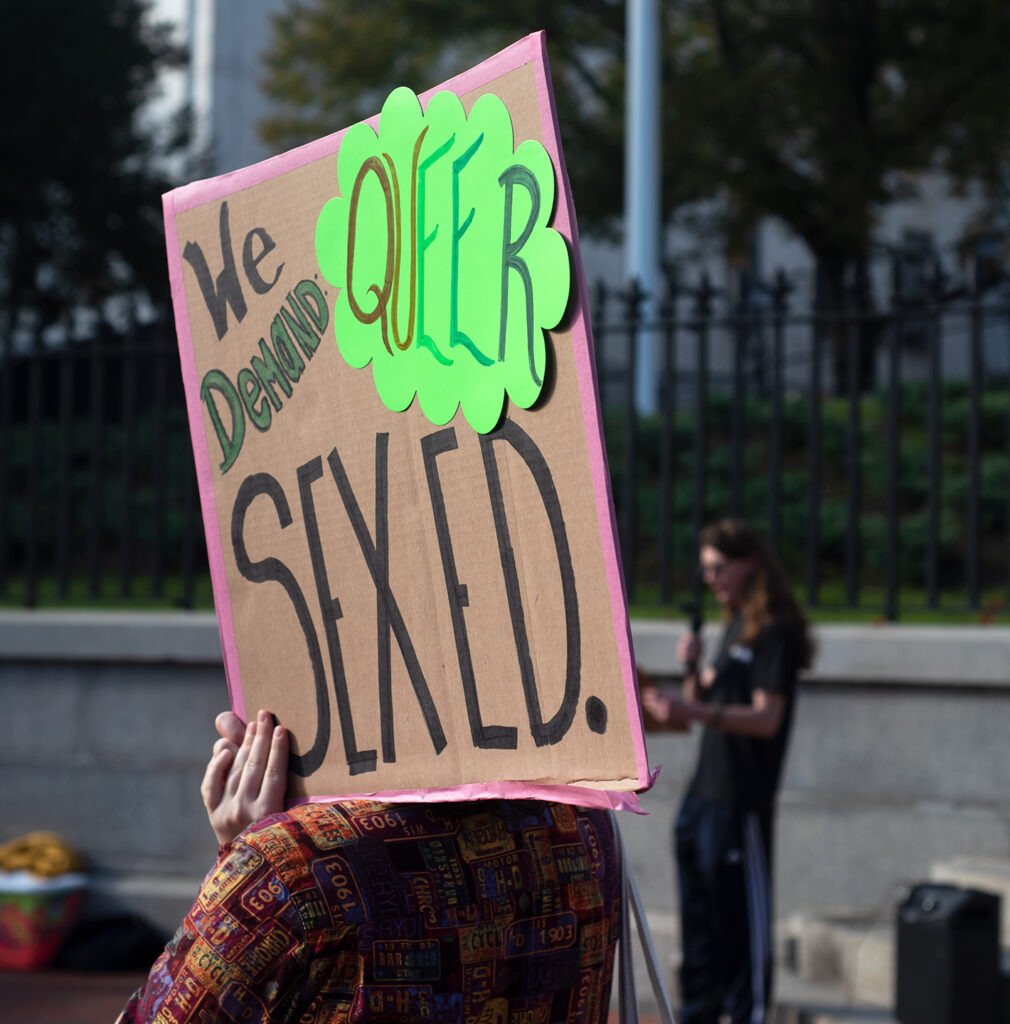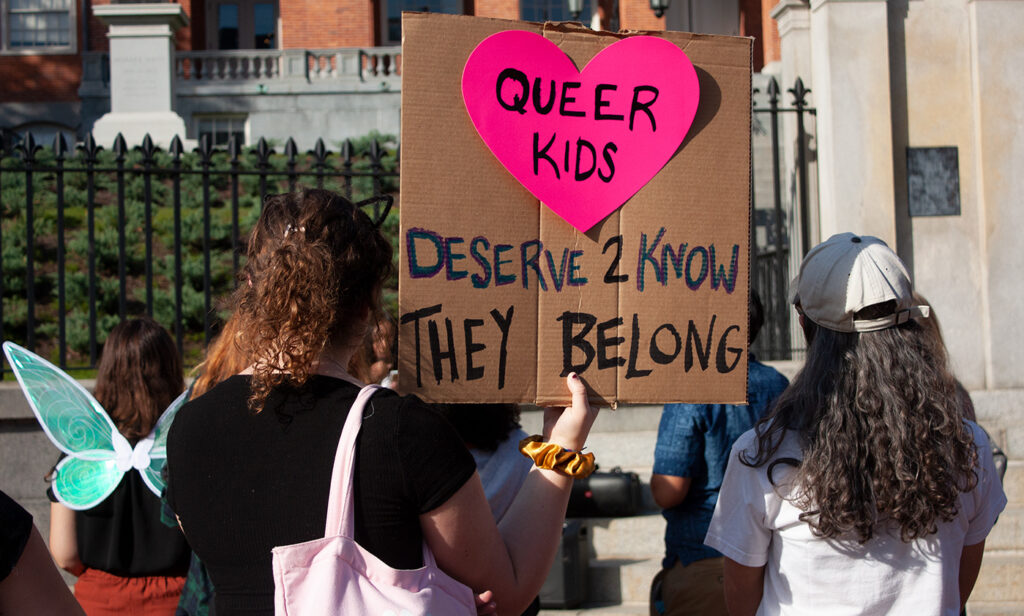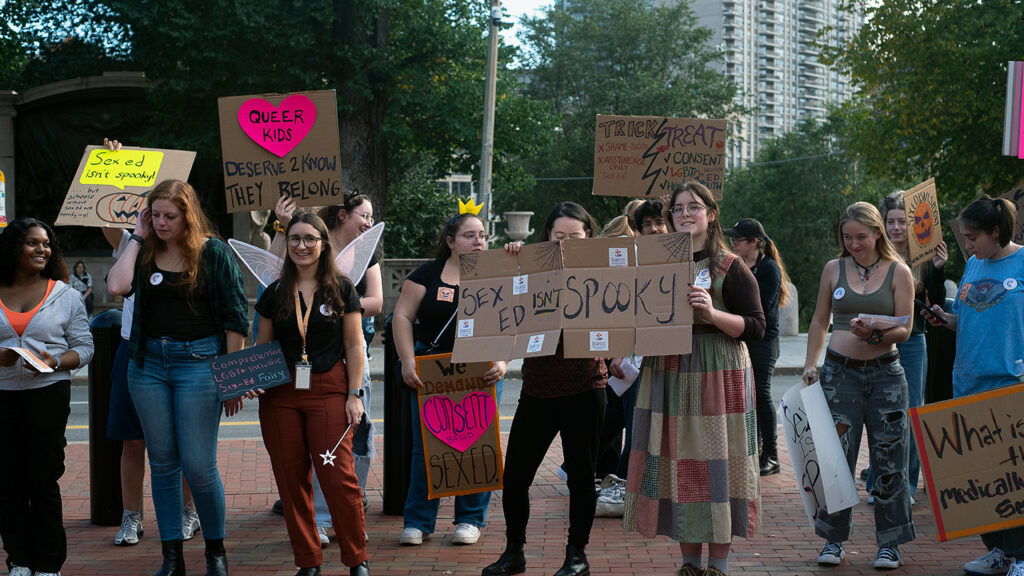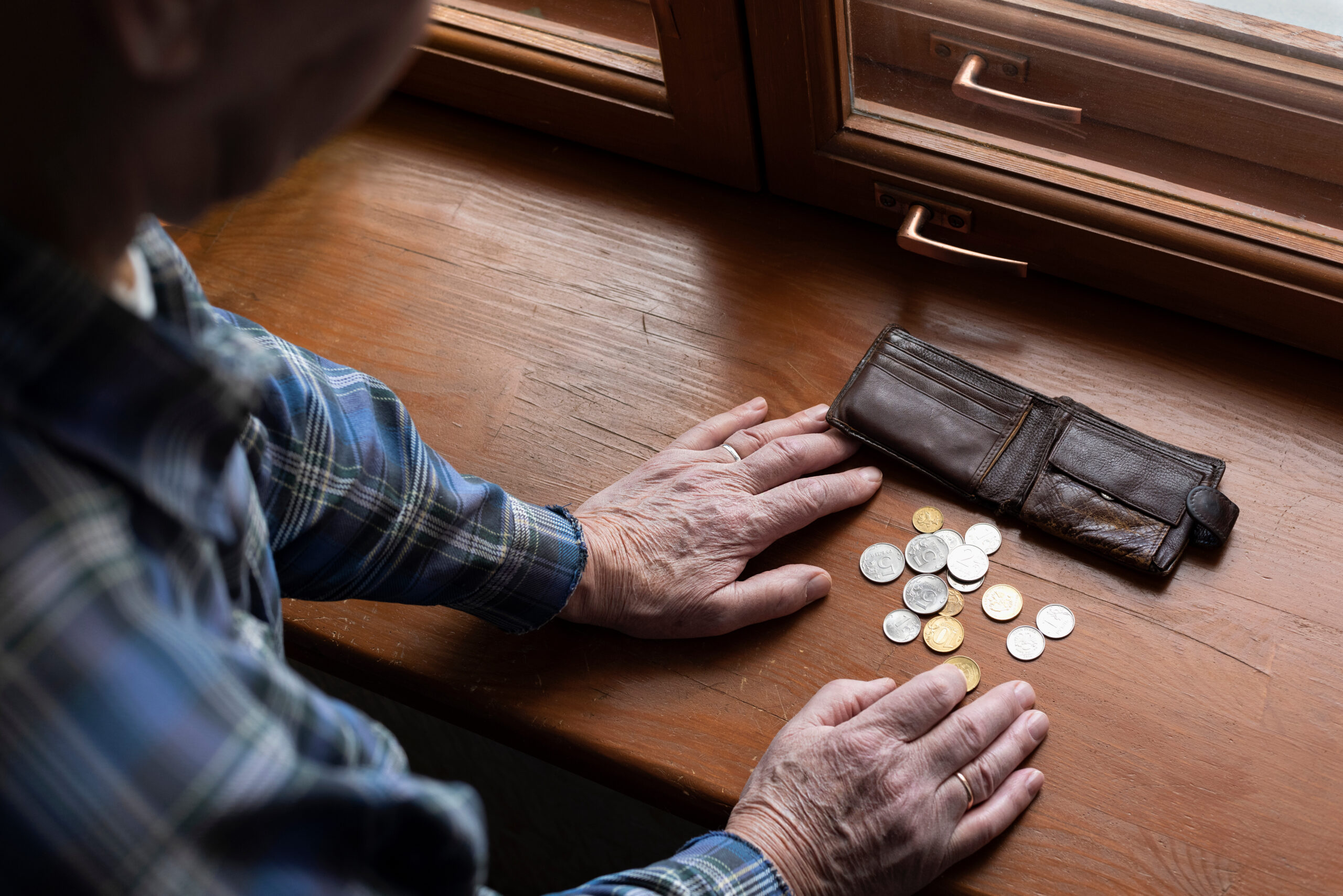BOSTON—A bill seeking comprehensive sex education in the state’s public schools is moving forward in the Legislature, on a topic that has struggled to get traction for more than a decade.
Bill H.544, also known as the Healthy Youth Act, was first introduced in 2011 for an inclusive sex ed curriculum and has yet to pass both chambers of the Legislature. It would require schools choosing to teach sex ed to use a medically accurate, age-appropriate and LGBTQ+ inclusive curriculum, according to the Planned Parenthood Fund of Massachusetts, which has been pushing for the legislation.
“We are a national leader in reproductive rights and LGBTQ+ rights,” said Rep. Vanna Howard (D-Lowell). “This bill is just way long overdue.”
The legislation passed in the Senate multiple times, including this year, but has been rejected in the House.
Howard is a chief sponsor of the bill with Sen. Sal DiDomenico (D-Cambridge) and Rep. Jim J. O’Day (D-Worcester). Currently, there are 89 co-sponsors from both the House and Senate, according to Howard. The bill has come closer than ever, although it will still need the governor’s signature after it passes the House. Howard is hopeful it will be approved and become law in the near future.
In a study conducted in 2018, Planned Parenthood found that 93% of registered Massachusetts voters surveyed supported comprehensive sex ed, and 91% voted for sex ed in high school.
Planned Parenthood is collaborating with Latino communities through programs such as the Promotores de Salud and Raíz community organizing, to increase awareness about sexual and reproductive health.
Michelle Soto, director of community education and engagement at Planned Parenthood, said the organization is hearing Latino parents urgently asking for support in communicating with young people about topics that are initially uncomfortable but that they know are incredibly important.

Lyv Norris, a member of the Healthy Youth Act Coalition, said the bill is not a mandate. It would require that the sex ed curriculum in schools meet different expectations, such as being age-appropriate, consent-based and LGBTQ+ inclusive.
Recently, roughly 60 people in the coalition gathered at the State House, while protesting under the name “Sex Ed Isn’t Spooky,” according to Norris.
“When you talk about sex ed, young folks don’t get squirmy. It’s not spooky. But the adults get squirmy,” said Howard, who attended the rally.
She said sex ed should not be something to be uncomfortable about and that it felt amazing to witness protesters lobbying legislators on its importance. She also thanked the administration of Gov. Maura Healey and Lieutenant Gov. Kim Driscoll for updating the health education framework, which was a major aim of the Healthy Youth Act.
The administration updated the sex ed curriculum guidelines this year to incorporate more inclusivity. However, the updates are guidelines for schools, not a requirement. Howard believes inclusivity should be mandatory in all sex ed curriculums.
Carrie Richgels, a Boston parent, said young people have “the right to be seen and heard as their authentic selves, safely.”
Richgels and other parent supporters state that their children should be receiving comprehensive and inclusive education through the Healthy Youth Act.
However, Sam Whitening, a staff attorney at the Massachusetts Family Institute, said that the bill entails what his organization believes is inappropriate for young people, such as uncensored content. He also said it would strip power from local school committees on determining whether to support abstinence education over comprehensive sex education.
The organization filed public records requests in every school district in Massachusetts that had a sex ed curriculum and was shocked by what they found, said Whitening in an interview along with another member of the organization.
“[We recently] uncovered videos they were showing to eighth graders that talk about gender surgeries… I wish I was exaggerating, but I’m not. And that’s the type of stuff that a lot of parents are against,” said Jess Richardson, the organization’s communications and research specialist.
Howard said young adults are not going to talk to their parents about these topics, so it is important that sex ed is taught in public schools.
Sonia Erlich, a Boston parent, said adults must normalize such conversations early and often in children’s lives. Erlich said that sexuality is personal, but it is “too important to wrestle alone with the questions.”
“Promotion and prevention, baby,” Erlich said.

This report was published in collaboration with the Boston University School of Communications School of Journalism. The journalism student is a member of a Reporting in Depth class taught by former Boston Globe reporter Meghan Irons.
Vanessa Lee is a junior studying Journalism with a minor in Business at Boston University. She is from South Korea and New Zealand and has lived in Malaysia for a period of her life. She is a student journalist with a passion for local news and investigative journalism.




